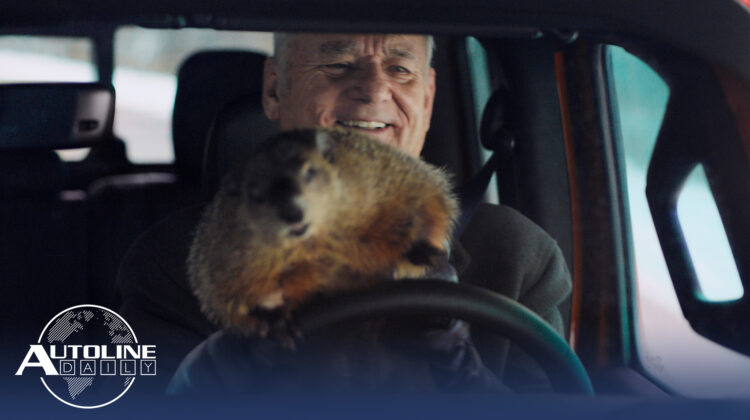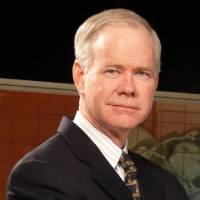
Follow us on social media:
Runtime: 9:10
0:07 China Sales Could Rebound After Coronavirus
0:56 Hyundai Suspends Palisade Production
1:21 Hyundai Offers Complimentary Maintenance
1:46 Jeep Super Bowl Ad Rated #1 Among Car Brands
2:35 Automakers Spend Little on EV Ads
3:41 Mercedes Ends X-Class Production
4:09 Next-Gen MINI Delayed
4:45 Toyota Forms Battery JV With Panasonic
5:17 CATL To Supply Batteries to Tesla
5:36 Toyota Fights Unintended Acceleration
6:39 Will Consumers Accept New Technology?
Visit our sponsors to thank them for their support of Autoline Daily: Bridgestone and BorgWarner.
This is Autoline Daily, the show dedicated to enthusiasts of the automotive industry.
CHINA SALES COULD REBOUND AFTER CORONAVIRUS
LMC Automotive says China’s car market looked like it was starting to recover just as the coronavirus hit the country. Retail sales fell 4.8% in December, but that was better than the double digit drops in the preceding months. Wholesale deliveries to dealers were down only 0.1% and production was actually up 6%. But strict travel restrictions due to the virus is likely to cause a big falloff in sales. However, LMC says once the virus is under control sales should rebound sharply. It also says that consumers could decide to avoid public transportation because of possible infections, and that there could be a spike in first-time buyers.
HYUNDAI SUSPENDS PALISADE PRODUCTION
The coronavirus outbreak forced Hyundai to suspend production of the Palisade SUV in South Korea over the weekend. Factory shutdowns in China caused a shortage of supplies for the Palisade, including the SUV’s entire electrical wiring system. That plant in Korea is the only place Hyundai makes the Palisade, so the shutdown is really going to hurt.
HYUNDAI OFFERS COMPLIMENTARY MAINTENANCE
Speaking of Hyundai, it’s upping the ante on warranty and service. You probably already know about its 10-year, 100,000-mile powertrain limited warranty. Now any U.S. customer who buys or leases a 2020 model year Hyundai will receive complimentary oil changes and tire rotations for three years or 36,000 miles, whichever comes first.
JEEP SUPER BOWL AD RATED #1 AMONG CAR BRANDS
Jeep’s Super Bowl ad for the Gladiator, featuring a recreation of the movie ‘Groundhog Day’ with Bill Murray, was the top automotive ad that aired during the game. That’s according to System1 Group, which analyzed viewer’s emotional response to ads in real time. Not only was the Gladiator the top ranked auto ad, beating out Hyundai and Porsche, it ranked number two out of all the ads during the game. System1 Group’s Chief Marketing Officer says “it wasn’t a vintage year for car ads” and the Jeep ad was the strongest among auto ads because “it worked by taking the focus off the car and onto the things its lets you do.” It was a fun ad but what do you think, was it the best of the car commercials?
AUTOMAKERS SPEND LITTLE ON EV ADS
There were three ads for electric cars that ran during the Super Bowl, the most EV ads that ever ran during the game. The New York Times points out that automakers and dealers spent $8.6 billion on advertising in the U.S. last year, but only 0.3% of that went to advertising electric cars. It cites a survey in California, where only one out of three people could correctly name an electric car, and most of them identified Tesla which doesn’t do any advertising. The Times admits that a lack of advertising is not the only reason why not many people buy an EV, and even it questions if there will be enough buyers in a couple of years when there will be more than 100 BEV models in showrooms.
MERCEDES ENDS X-CLASS PRODUCTION
Well, that didn’t last long. Mercedes is stopping production of the X-Class pickup in May. It was Mercedes’ first pickup and was just a rebadged Nissan Navara with several upgrades. The X-Class went on sale as a 2018 model but buyers weren’t very interested. Mercedes only sold 15,300 X-Class’ globally in 2019, and so it’s putting the X-Class to sleep.
NEXT-GEN MINI DELAYED
MINI normally comes out with a new generation platform every 6 years but it’s adopting a longer life cycle for its current Hardtop model, which hit the market in 2014. Reuters reports it has to do with “cost reasons and because of Brexit.” BMW, which owns MINI, will not make an investment large enough to upgrade its plant in England that builds the car until it knows more about Brexit export tariffs. If they’re higher than 5%, BMW will likely shift production to the Netherlands.
TOYOTA FORMS BATTERY JV WITH PANASONIC
There’s a lot of talk about a manufacturing shortage of batteries for electric cars. So Toyota just formed a new joint venture with Panasonic, called Prime Planet Energy & Solutions. It will have locations in Japan and China to mainly make prismatic lithium-ion batteries, but will also develop solid-state batteries and batteries based on new principles, though they didn’t say what that entails. They’ll start making prismatic batteries in April.
CATL TO SUPPLY BATTERIES TO TESLA
In other battery news, China’s largest battery maker CATL signed an agreement to supply batteries to Tesla. The EV maker said it’s on a smaller scale than the amount of batteries it gets from Panasonic. Tesla also has a small-scale battery supply chain with LG Chem.
TOYOTA FIGHTS UNINTENDED ACCELERATION
As we keep pointing out, so called sudden unintended acceleration is normally caused when a driver mistakenly steps on the gas pedal instead of the brake. Even so, Toyota faced numerous lawsuits over unintended acceleration and developed a system to recognize when there’s a misapplication of the accelerator. Now it’s upgrading that system, so It no longer has to detect an obstacle like another car or wall to trigger. The system looks at vehicle speed, how hard the pedal is pressed and how far it’s pressed down and if it thinks it was mashed down by mistake, the system will limit acceleration. Toyota thinks this will be helpful in areas like parking lots. The feature will start rolling out this summer on certain vehicles, first in Japan.
WILL CONSUMERS ACCEPT NEW TECHNOLOGY?
When it comes to new technology, sometimes the biggest hurdle for adoption is consumer acceptance, not any technical drawbacks. On last week’s Autoline After Hours we were joined by Aaron Jefferson, the VP of Electronics and ADAS at ZF. And he discussed if it will be technical issues or consumer acceptance that will hold back Level 2 driver assistance systems becoming more commonplace.
Aaron Jefferson, VP Electronics and ADAS Division, ZF
“I think we’re at a point now where the technology is mature enough in terms of the radar sensing, the camera sensing. Lidar not yet, Cadillac does not have Lidar, Tesla barely has radar. You can do a lot with camera and radar today and you can make it safe. And if you can put enough computing there, computing is kind of the limiting factor now but silicon is getting more and more powerful, cost is coming down rapidly. So technically I don’t think that will be an inhibitor, I think it is building the confidence of the consumer. I mean there are people with ACC (Adaptive Cruise Control) today that don’t use it because they’re just not comfortable. They’re people with lane-keeping, which was a bit of a false introduction to the market because there were beeps and you could turn it off, so everybody just turned it off, as opposed to trying to figure out, you know figure out, how’s it maybe going to save my life. But I think there’s a mix. From a marketing perspective, you see advertisements all the time now, it’s like a, I won’t call it a Level 4 race but it’s essentially a lot of competition especially in the U.S. to say these are the features I provide. Toyota is a great example, they barely had blind spot (monitoring) and now they have AEB (Automatic Emergency Braking) and they have front sensing on every vehicle they sell from the Yaris up to the full Lexus line. So the technology is here and I think the consumer acceptance is gradual. Can you get them used to an ACC, can you get them used to a lane-centering, can you lessen the amount of incidents in the field that shouldn’t happen?”
You can watch that show on our website, Autoline.tv or just look for it on our YouTube channel.
But that’s it for today, thanks for watching and please join us again tomorrow.
Thanks to our partner for embedding Autoline Daily on its website: WardsAuto.com

John McElroy is an influential thought leader in the automotive industry. He is a journalist, lecturer, commentator and entrepreneur. He created “Autoline Daily,” the first industry webcast of industry news and analysis.




